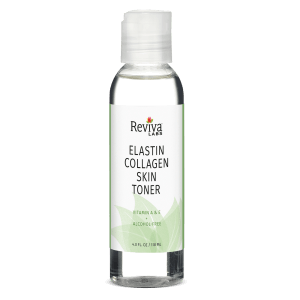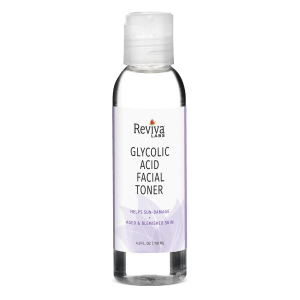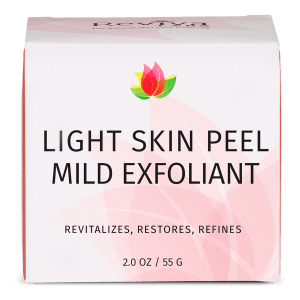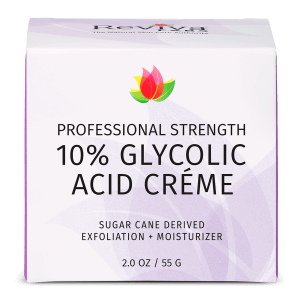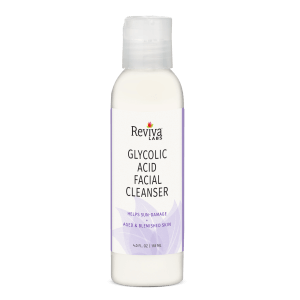Reviva Labs, Skin Care
Will My Skin Always Be This Oily?
Oily skin is a very common skin condition and one of the most frustrating skin types. The root cause of oily skin lies in our sebaceous glands, which are responsible for producing sebum. Sebum is an oily substance that helps to protect and moisturize the skin. However, when these glands produce too much sebum, the result is an oily complexion that can be difficult to manage.
Several factors contribute to the overproduction of sebum. Genetics play a significant role, as oily skin often runs in families. Hormonal fluctuations, such as those experienced during puberty, pregnancy, or menstruation, can also trigger increased oil production. Furthermore, environmental factors like humidity and heat can exacerbate the problem, making it more challenging to keep oil under control.
The Challenges of Living with Oily Skin
Oily skin presents unique challenges that can affect one’s self-esteem and confidence. The most noticeable issue is the persistent shine that can develop, particularly in the T-zone area, which includes the forehead, nose, and chin. This shine can make the skin appear greasy and unclean, even shortly after washing.
Another challenge is the tendency for oily skin to be prone to acne breakouts. Excess oil can clog pores, trapping dirt, bacteria, and dead skin cells inside. This environment fosters the development of blackheads, whiteheads, and other types of acne. People with oily skin often struggle with larger pores that can be difficult to minimize. Additionally, makeup may not last as long on oily skin, as it can break down or slide off throughout the day, requiring frequent touch-ups.
Despite these challenges, it’s important to recognize that oily skin has some benefits. The natural oils help to maintain skin moisture, which can slow down the aging process. People with oily skin may find that they experience fewer wrinkles and fine lines as they age, compared to those with drier skin types.
Will My Oily Skin Last Forever?
The persistence of oily skin varies from person to person, depending on several factors. For some, oily skin may diminish with age as the sebaceous glands produce less sebum over time. However, others may continue to experience oily skin well into adulthood.
Hormonal changes are a significant factor in the evolution of skin type. For instance, during menopause, many women notice a decrease in oil production, leading to drier skin. While it’s difficult to predict whether oily skin will last forever, adopting a consistent skincare routine tailored to your skin type can help manage and control oil production effectively. Even if your skin remains oily, the right products and habits can minimize the associated challenges.
Skincare Products that Control Oily Skin
Controlling oily skin requires a balanced approach that addresses excess oil without stripping the skin of its natural moisture. One of the most effective steps is using a gentle cleanser formulated for oily or acne-prone skin. Look for products containing salicylic acid, glycolic acid, or benzoyl peroxide, which can help to exfoliate the skin, unclog pores, and reduce oiliness.
Gel-based or foaming cleansers are generally recommended. For everyday oil maintenance, look for cleansers that contain ingredients like salicylic acid or tea tree oil, which help to reduce oil and keep pores clear.

Toners can very beneficial, particularly those containing witch hazel or glycolic acid. These ingredients help to remove excess oil and tighten pores without drying out the skin. It’s important to avoid alcohol-based toners, as they can strip the skin and lead to increased oil production.
Moisturizing may seem counterintuitive for oily skin, but it’s a necessary step to maintain balance. Skipping moisturizer can cause the skin to overcompensate by producing even more oil. Choose a lightweight, oil-free moisturizer that hydrates without adding extra shine. Gel-based moisturizers are an excellent option, as they provide hydration without a greasy feel.
Exfoliation is another important aspect of managing oily skin, as it helps to remove dead skin cells that can clog pores and contribute to breakouts. Incorporate a gentle exfoliator with ingredients like alpha-hydroxy acids (AHAs) or beta-hydroxy acids (BHAs) into your routine two to three times a week to keep the skin smooth and clear.
In addition to these basic skincare steps, clay masks can be used once or twice a week to absorb excess oil and deeply cleanse the pores. Ingredients like kaolin or bentonite clay are particularly effective in drawing out impurities and reducing shine.
For daytime use, incorporating a mattifying sunscreen is essential. Sunscreen is crucial for protecting the skin from harmful UV rays, but many traditional formulas can feel heavy on oily skin. Choose a sunscreen specifically designed for oily skin, which will offer sun protection while controlling shine.
Adjusting Your Routine Over Time
As you age or experience changes in your environment or lifestyle, your skin’s needs may shift. It’s important to be mindful of these changes and adjust your skincare routine accordingly. What works during a hot, humid summer might not be as effective in the cold, dry winter months. Likewise, hormonal changes or new medications might require you to tweak your approach to managing oiliness.
Staying consistent with your skincare routine while being flexible enough to adapt to changes is key to long-term management of oily skin. Regular check-ins with a dermatologist can also be helpful, especially if you’re dealing with persistent acne or other skin issues related to oil production.
Understanding Oily Skin
While oily skin may be a lifelong companion for some, it doesn’t have to be a source of frustration. With the right skincare routine and products, you can manage oily skin effectively, keeping your complexion clear, balanced, and healthy.







